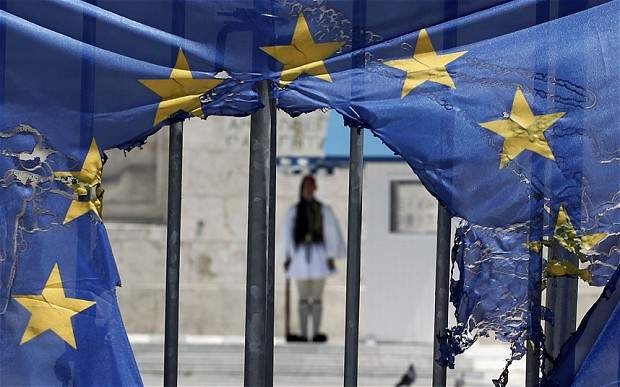Greek Debt Crisis: Why it Matters for Georgia
This week Eurozone finance ministers rejected the Greek government’s request for a bailout extension. The decision came after Greek PM Alexis Tsipras and his cabinet held an emergency conference call asking for a two-year rescue deal.
If the Greek government fails to repay the EUR 1.7 billion loan to the International Monetary Fund (IMF) that was due on Tuesday, the country may be forced to leave the Eurozone.
A crowdfunding campaign was launched to raise cash for the Greek bailout. The “Greek Bailout Fund” campaign, launched on crowdfunding platform Indiegogo.com, was launched on Monday and has already raised over 220,000 euros from 14,000 individual donors.
Some offered solutions to the Greek economic crisis seem more whimsical than serious. French film director Jean-Luc Gordard suggest paying Greece 10 euro for each time the term ‘therefore’ is used. Greek philosopher Aristotle first expressed the concept of ‘therefore.’
In the midst of the crisis and in efforts to avoid financial panic, the Greek government has stopped online payment transactions from going ahead using Greek credit cards. As a result of this, almost 200,000 Georgians living and working in Greece are currently affected.
Greece (after Russia) is the second-leading country in terms of volume of remittances to Georgia. In 2015, an average of USD 13.3 million was transferred from Greece to Georgia per month. In May 15, 2015, the National Bank of Georgia (NBG) published data of money transfers, which showed that the sum of money transfers from abroad constituted a total of USD 91.1 million.
The Greek crisis presents two major problems for Georgia. One is the condition of Georgian workers in Greece, and the second is negative consequences on the Georgian economy and families in Georgia who depend on remittances. As data illustrates that the role of remittances in the Georgian economy is significant, the Greek crisis will play an important role in the Georgian economy.
Georgian workers living in Greece already face problems receiving their monthly salaries. Georgians have not lost their jobs yet, but they don’t know when they will be paid, or how much.
“We’re waiting for the results of the referendum and after that we will decide if it’s worth staying in Greece. If Greece leaves the Eurozone, the country will probably launch tight immigration policy and we will have to leave Greece,” said one Georgian living and working in the crisis-ridden country.
On Sunday July 5, Greece will hold a referendum in which voters will be asked to decide whether to accept creditor conditions for further bailout aid.
Despite the tough situation in Greece, some Georgians are wary of demonstrating in the streets as they work illegally and are afraid of deportation.
Roman Gotsiridze, head of the Georgia-based Economic Development Center, states that, at first, remittances to Georgia are expected to be reduced by 4 or 5 million euros per month. However, the greatest concern is whether or not this is to be a long-term crisis in Greece set to leave thousands of Georgians there unemployed.
Teona Surmava












